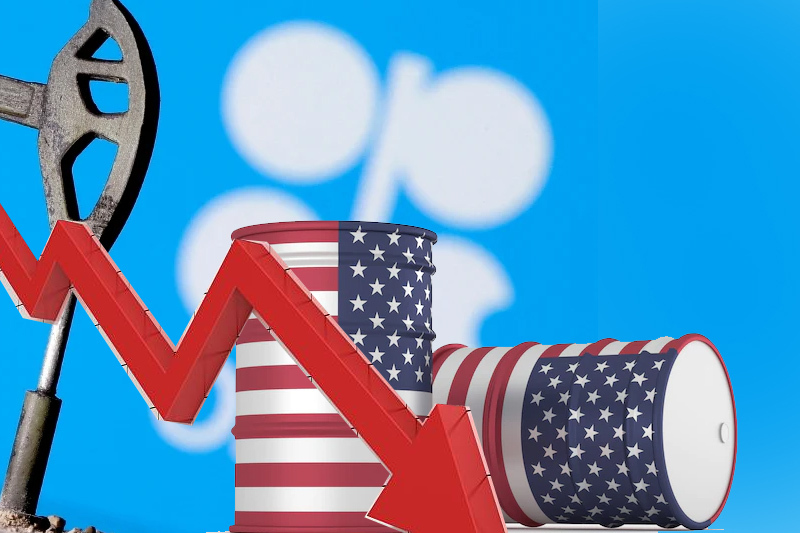
Oil Prices Slide on Concerns about US Debt Ceiling & OPEC+ Talks
Oil prices experienced a decline of more than 4% on Tuesday due to concerns surrounding the approval of the U.S. debt ceiling agreement by Congress.
Additionally, mixed messages from major oil producers added to the uncertainty regarding the supply outlook ahead of the upcoming OPEC+ meeting.
Uncertainty over US Debt Ceiling and Potential Impact on Oil Market
Some hard-right Republican lawmakers expressed their opposition to raising the U.S. debt ceiling, causing concerns among market participants.
The United States, being the largest oil consumer globally, could face potential disruptions in financial markets if the deal is not passed.
However, Democratic President Joe Biden and Republican House of Representatives Speaker Kevin McCarthy remain hopeful that the agreement will receive the necessary approval.
Market analyst Phil Flynn from Price Futures Group highlighted the ongoing drama over the debt ceiling as a significant concern.
He emphasized that until the votes are secured, the oil market will remain on edge, closely monitoring the developments.
Keep Reading
OPEC+ Meeting Coincides with Debt Deadline
The House Rules Committee is scheduled to review the 99-page bill on Tuesday afternoon, followed by votes in both the Republican-controlled chamber and the Democratic-led Senate.
The outcome of these deliberations will be crucial in determining the fate of the debt ceiling agreement.
The debt ceiling deadline nearly coincides with the OPEC+ meeting scheduled for June 4. Market participants are unsure whether the group will decide to increase output cuts as oil prices continue to face downward pressure.
Mixed Signals from OPEC+ Producers
Saudi Arabian Energy Minister Abdulaziz bin Salman issued a warning to short-sellers anticipating a decline in oil prices, possibly indicating a potential output cut by OPEC+.
However, statements from Russian oil officials and sources, including Deputy Prime Minister Alexander Novak, suggest that Russia, the world’s third-largest oil producer, leans towards maintaining current output levels.
In April, OPEC+ members, including Saudi Arabia, announced additional oil output cuts totaling approximately 1.2 million barrels per day.
This brought the cumulative volume of cuts by OPEC+ to 3.66 million barrels per day, according to calculations by Reuters.
Impact of Chinese Economic Data on Oil Demand
Traders and market observers are also closely watching for Chinese manufacturing and service sector data, set to be released later in the week. This data will provide valuable insights into the recovery of fuel demand in the world’s largest oil importer.




